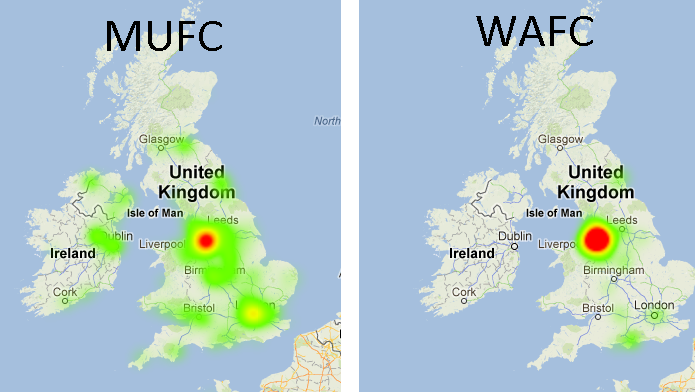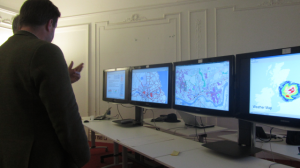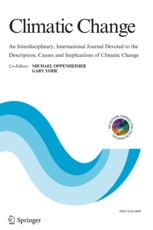The location of the football team that you support is often a cause for debate, with chants like “we support our local team” being heard on the terrace week in week out. And now with the influx of football fans taking to twitter to support their teams this provides another way of measuring this metric.
As a group the idea of using twitter to crowd source the location of events is not a new one. Previously we have used it to record flood events across the north east allowing for a real time map to be produced. An idea which will be used heavily in the forthcoming iTURF project (integrating Twitter with Realtime Flood modelling).
Developomg a football script it was simply a matter of applying our previously developed scripts to record the locations of tweets related to football teams. Here, the official hashtag for each team and then simply recorded the club, location and time, the actual body of the tweet is not stored. With the script in place data feeds into a database and a webpage displaying the tweets in real-time which is available here

The data can also provide hotspots showing key areas of support for each team, predictably some show more spread than others.
More details, including analysis of average distance from homeground are reported on the Geospatial team’s webpages.








